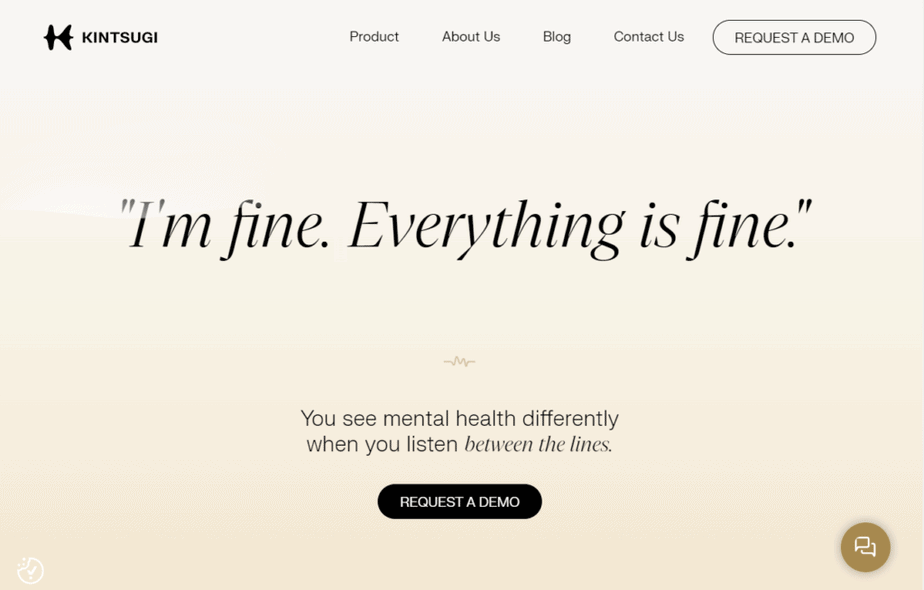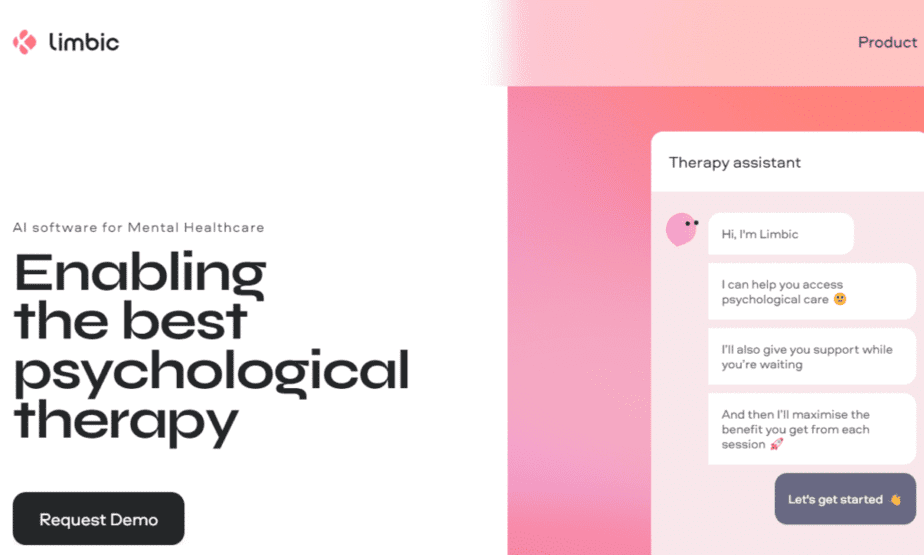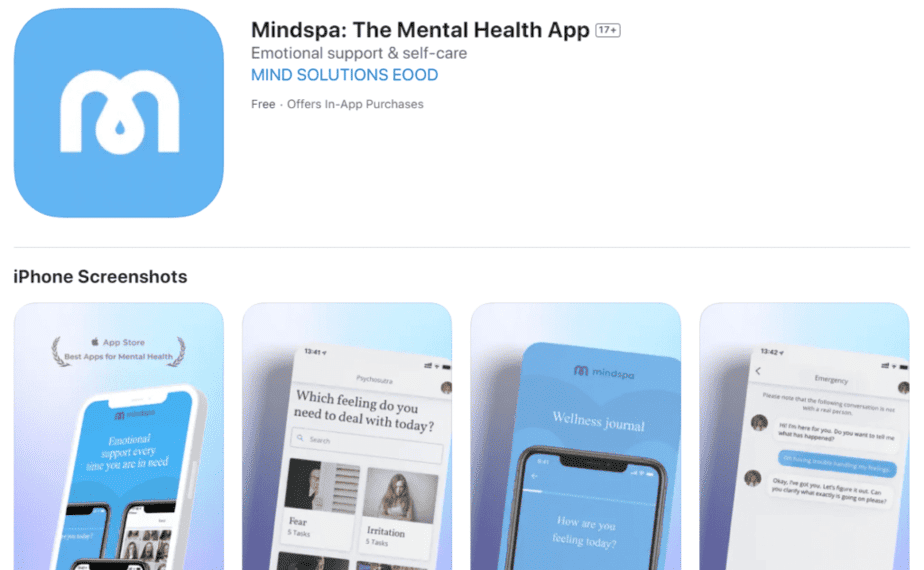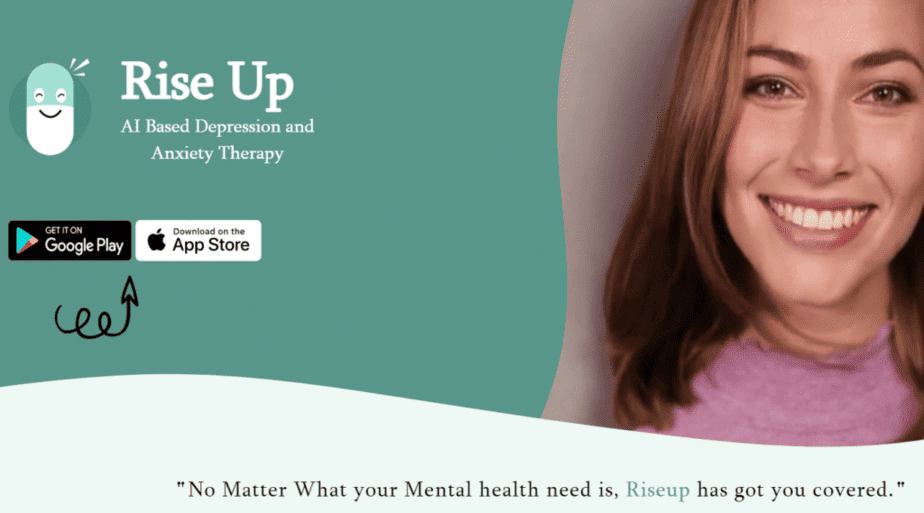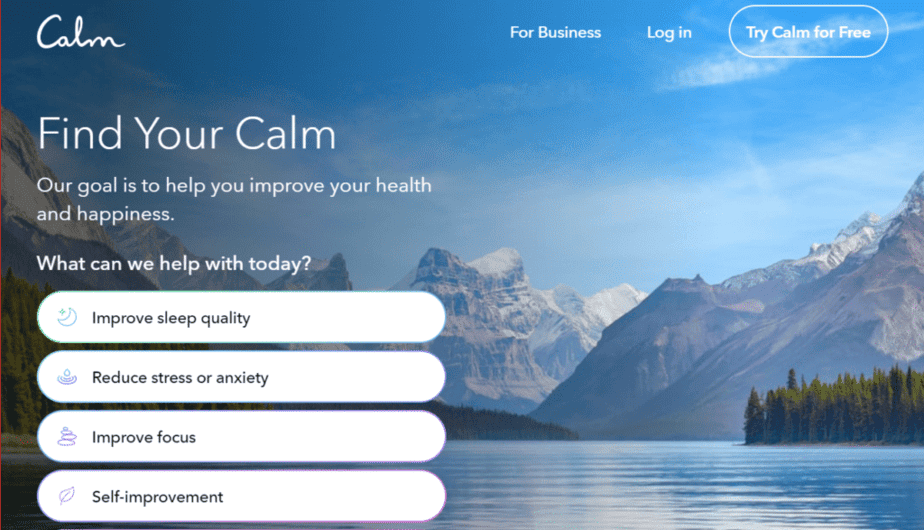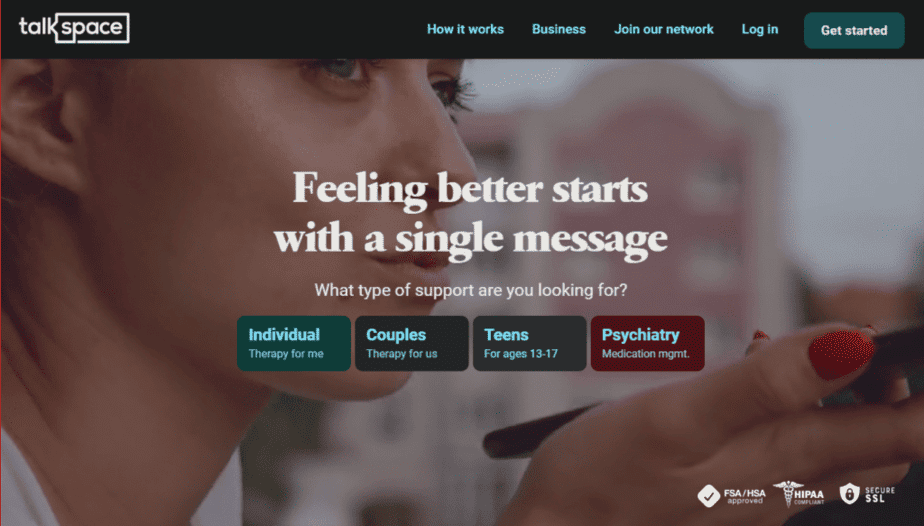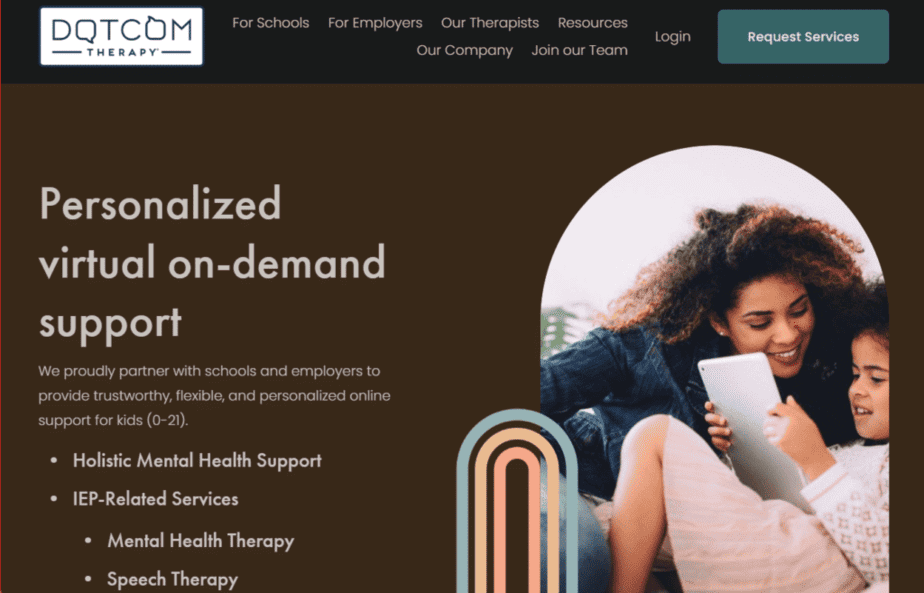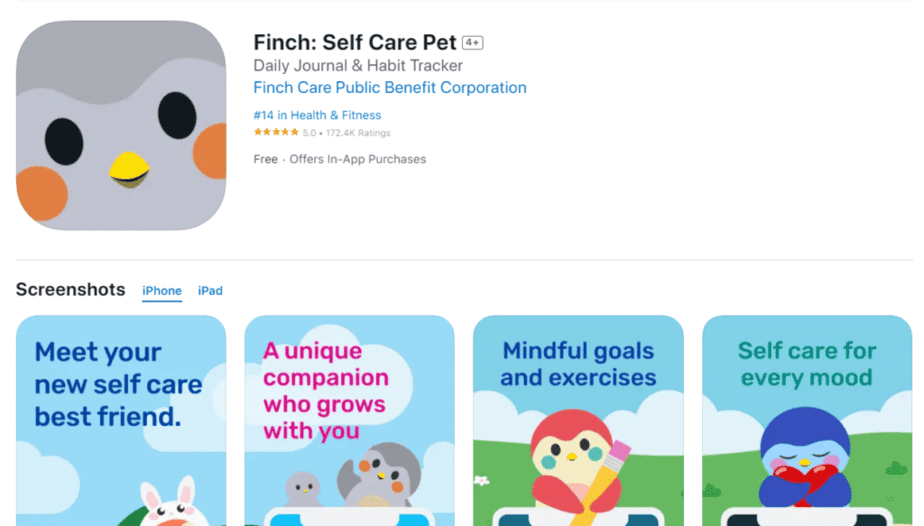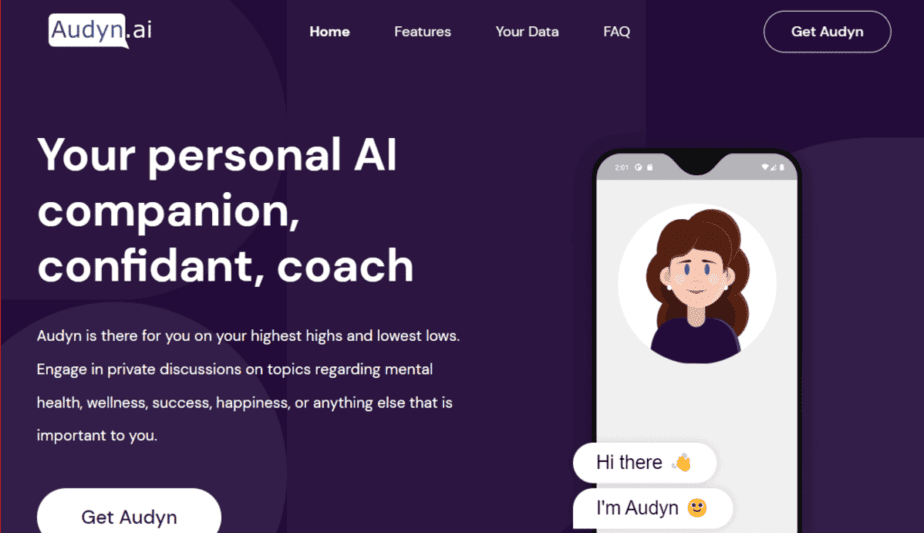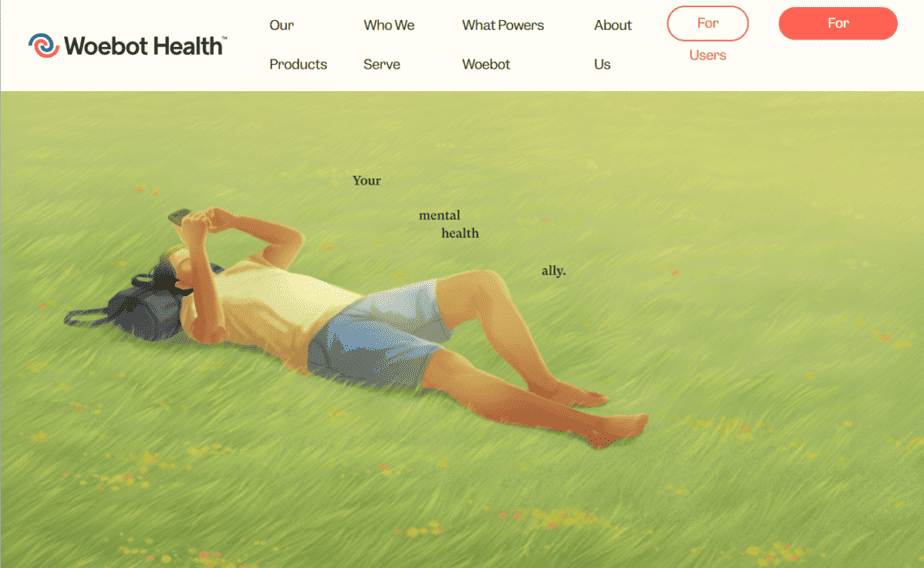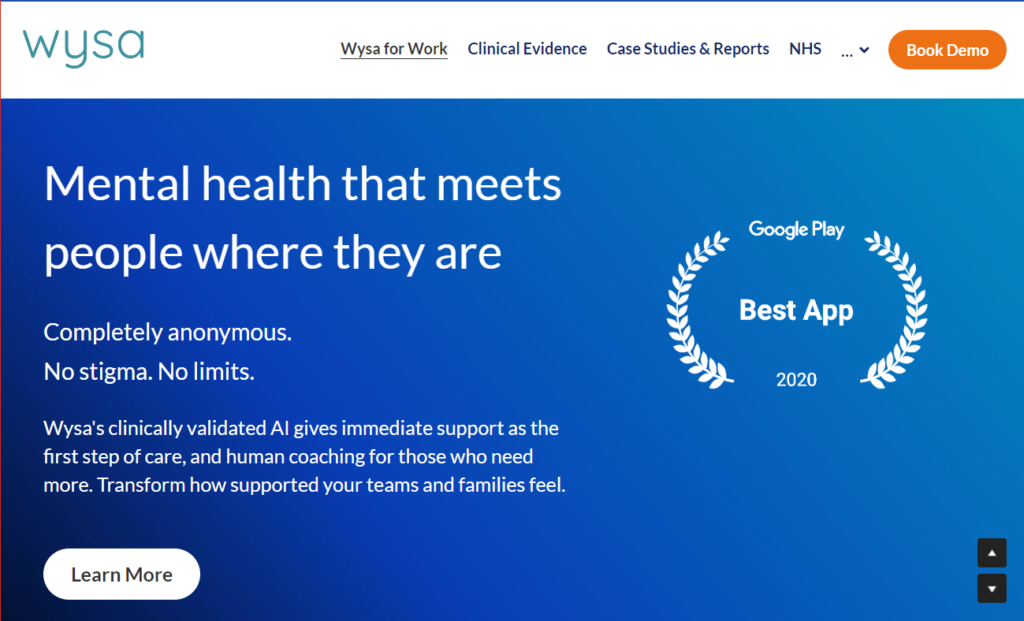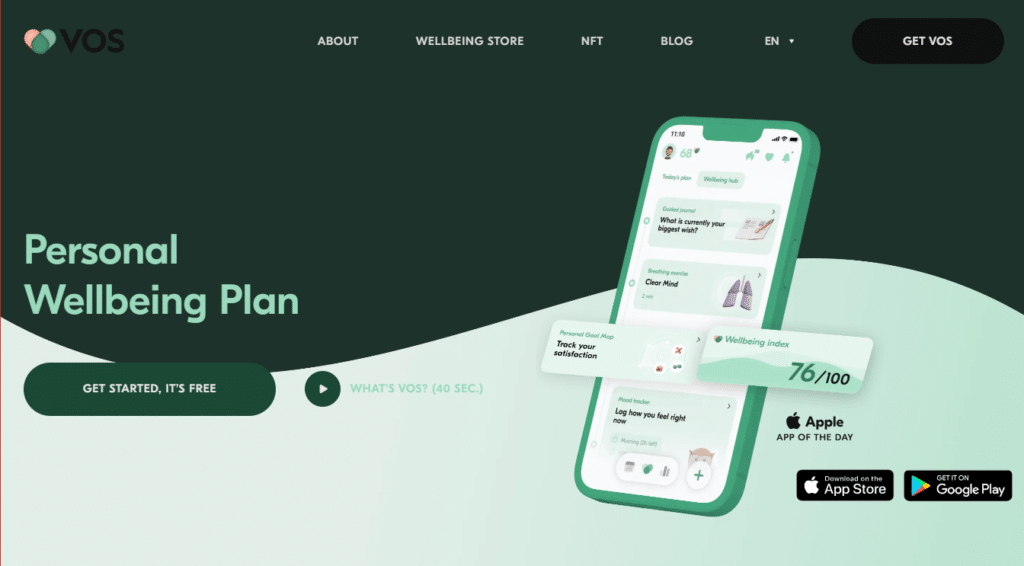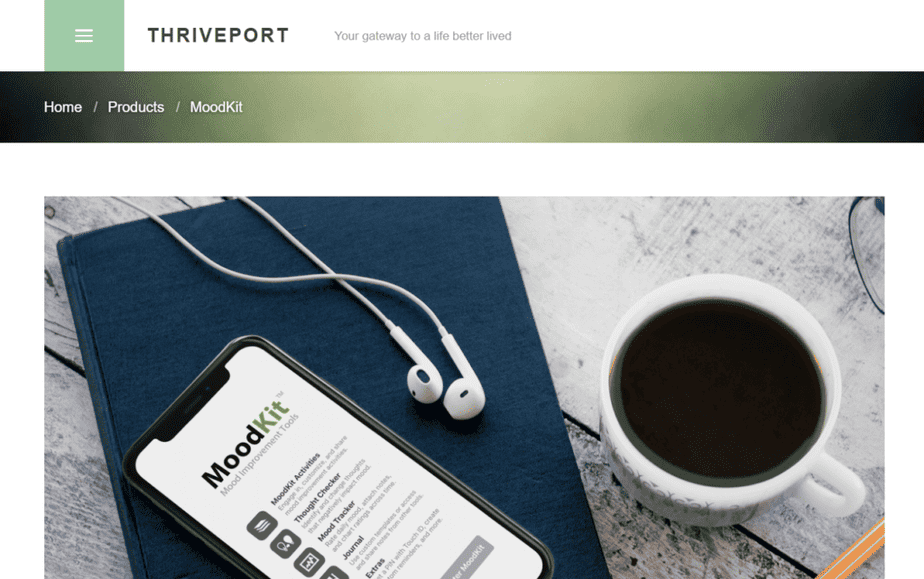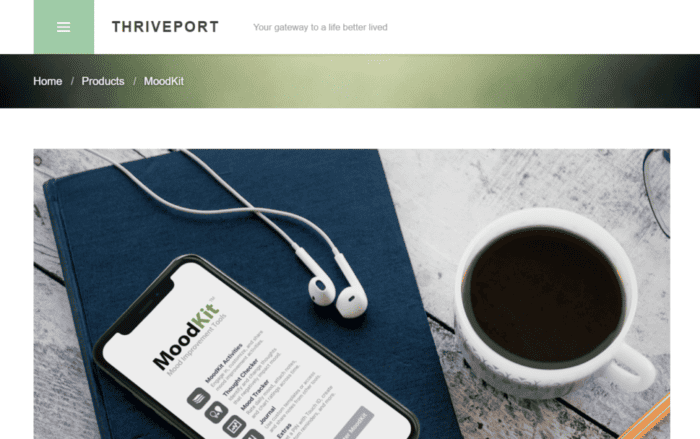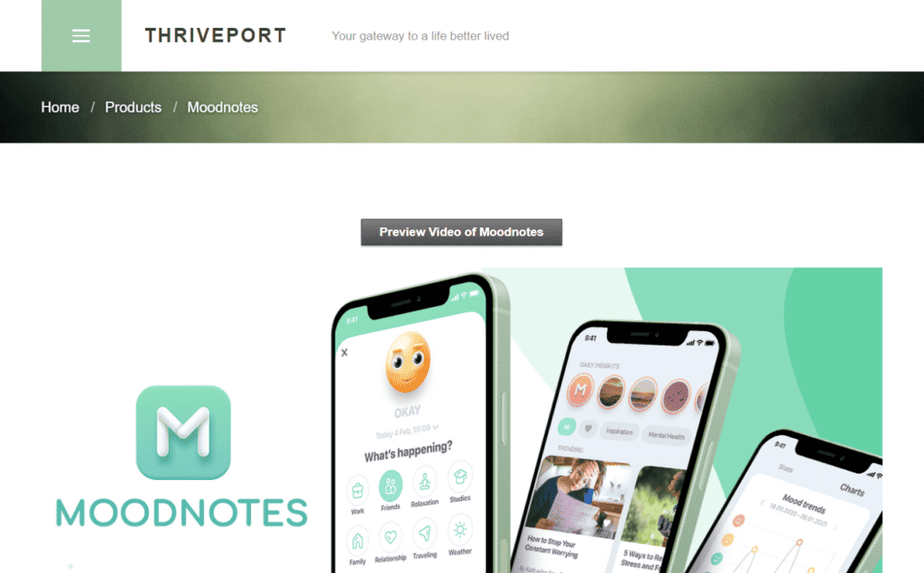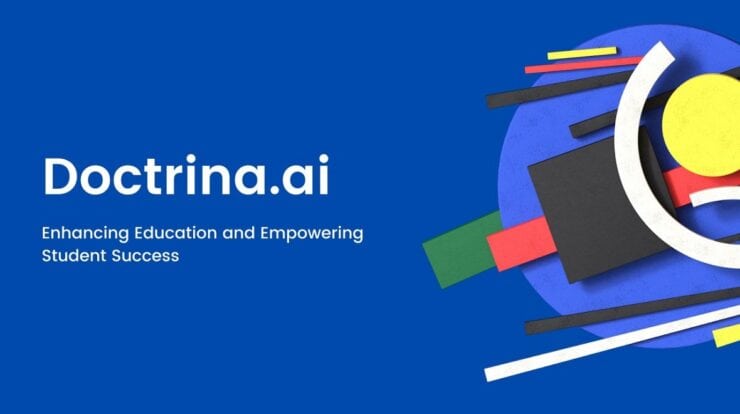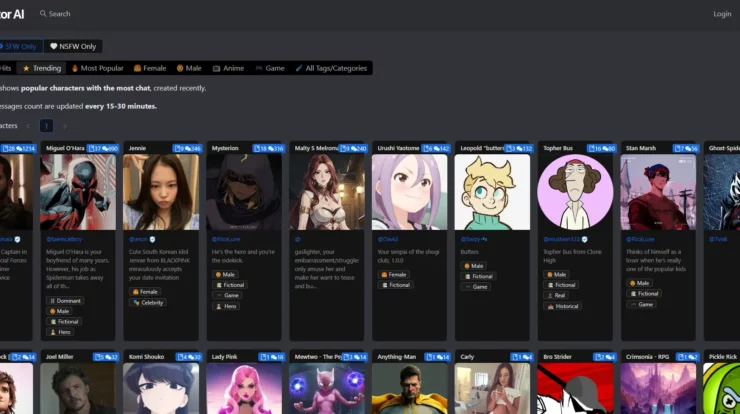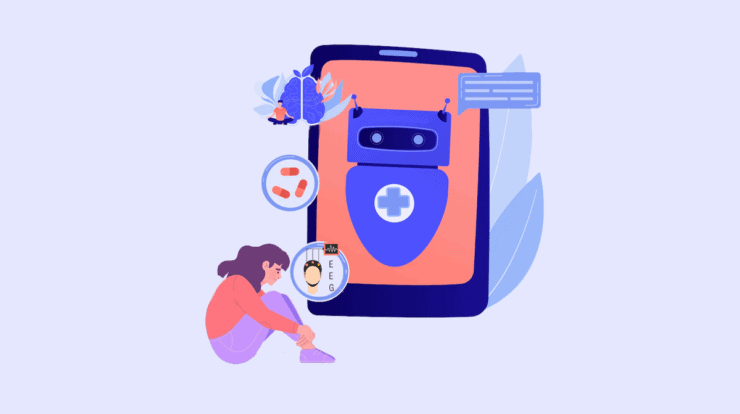
Acceptance and focus are the main goals of mental health. To describe and promote mental health, you don’t even need to put the word in parentheses or use a fancy typeface. Although sadness is an emotion, depression is a medical problem that needs to be taken seriously and treated by a doctor. Sadly, not everyone can get the help they need. In light of this, we’ve put together a list of the best AI Mental Health Chatbots and therapy that don’t just aim to force you to affirm but can actually help.
Top AI Mental Health Chatbots List
Mental health issues are widespread. Like any physical illness, it must be recognized and managed appropriately. Even though artificial intelligence is now widely used in our daily lives, let’s review some of its potential uses and the best AI Mental Health Chatbots available.
Note 1: It is not advisable to rely solely on these AI chatbots for mental health needs. On the other hand, people who require assistance in overcoming mental health issues can find great benefits from them. If you feel that these AI Mental Health Chatbots are not really helping, you should consult mental health doctors.
Note 2: None of the AI Mental Health Chatbots apps in this list are sponsored or endorsed by us. Users are responsible for protecting their data from loss or breach of privacy.
1) Kintsugi
Do you believe that broken things are repairable? Imagine having another excuse to be depressed all the time—that is, having the ability to fix your favorite bowl that has escaped your grasp. This is the fundamental concept of the Japanese art style known as Kintsugi, which combines gold with broken bits to produce a piece that is both stronger and more beautiful than it was before. The Kintsugi app was inspired by this innovative concept and aims to increase mental health treatment accessibility for individuals who want it while also enhancing the foundations of mental well-being.
- Using voice for self-care and journaling
- Provides information about a person’s mental health by using voice biometrics.
- An AI tool for mental wellness is available 24/7.
- Minute timer for mindful breathing
- Exercises in Cognitive Behavioral Therapy.
- Monitor your emotional development.
- Kintsugi Voice API for quick identification of mental health
- For $24.99, purchase and download the app from the App Store.
2) Limbic
Limbic is a free mental health chatbot that offers mental health services to professionals, patients and caregivers. With the goal of advancing knowledge within psychotherapy, it unites software engineering, neuroscience, machine learning, and psychology on its platform. The program, used by National Health Service (NHS) talk therapy clinics and accredited by the NHS Academic Health Sciences Network, uses artificial intelligence (AI) to treat psychiatric disorders.
- A limbic chatbot for emotion and thought management
- Finds patterns and generates individual insights.
- Transports patients for treatment without any hindrance.
- No need to sign up or log in.
- Notes daily therapy sessions and keeps a mental health journal to monitor improvement.
- Get this mental health software for free on the App Store and Google Play Store.
3) Mindspa: The Mental Health App
Mind Spa is for people who struggle with severe depression, self-doubt, loneliness, and other emotional issues such as distrust, jealousy, apathy, resentment, and more. This software uses psychoeducation to teach users how to understand psychology, control their emotions, and deal with their feelings. Together, exercises, classes and counseling can help one’s mental health.
- Articles about psychology, mental health advice, and personal development courses
- Self-assessment tools, exercises for mental wellness, and psychosutra self-help exercises
- Integrated mood and psychotherapy journal for monitoring feelings, thoughts, and situations
- A free AI chatbot for mental health emergencies that responds faster.
- Get the app from the Google Play Store and App Store.
4) Rise Up
Though Rise Up is still new to the AI mental health therapist chatbot industry, it appears that it can help people with anxiety, stress, depression, rage, low self-esteem, and poor confidence. Users of Rise Up can seek recovery by freely sharing their ideas and emotions in a secure and protected environment.
- Tracks user sentiment and gives them the ability to create mood charts for recurring reviews.
- A mental health assessment to understand the symptoms of mental illness
- One can learn more about their personality by taking personality tests.
- Different breathing and meditation techniques
- Get the software from the Google Play Store or the App Store.
5) Calm
In the end, if there is no peace, what is the use of all this chaos? The Calm app, one of the most eagerly awaited AI mental health solutions, gives users the ability to manage everyday stress and anxiety. With an app that promotes relaxation and meditation to improve sleep quality, long days feel shorter at night. Even if it doesn’t fix everything, getting enough sleep can help you feel better, prioritize self-care, face any difficult tasks, and refocus by regulating your mood.
- Experienced professionals to offer meditation guidance
- Deeper sleep, reduced anxiety, improved focus, kicking bad habits, and other benefits are all part of mindfulness.
- Bedtime stories for both adults and children with restful sleep
- Sleep Aids: Relaxing music, soundscapes, and sleep sounds.
- Daily 10-minute programs, such as Daily Calm, Daily Trip, etc.
- A tracker for mental and emotional well-being that includes mindfulness minutes and daily charts.
- 21-day and 7-day mindfulness courses
- Quiet family plans, team and enterprise plans for staff members
- Get the app from the Google Play Store and App Store.
6) Talkspace
Oren Frank and Ronnie Frank founded Talkspace in 2012. Through its website or app, Talkspace connects people who are reluctant or unable to get in-person therapy sessions with more than 3,000 qualified therapists. By scheduling therapy appointments for individuals, couples, teens, and doctors, the company aims to increase access to therapy and promote awareness of mental illness.
With the use of text, audio and video chat, users can practice sessions with any therapist who comfortably matches them on the platform. You can start therapy as soon as you inform the platform of your choice, and they will match you with a specialist candidate in less than 48 hours.
- Reduces the time and hassle of finding physicians and making appointments.
- Plans that are tailored to customer needs.
- Able to transfer quickly and cheaply between providers
- Psychiatry, teen therapy, couples therapy, online therapy, and more
- Communicating for businesses will increase access to mental health services.
- Takes insurance and is available for an average price of $30.
- The most affordable AI chatbot for mental health
- Get the app from the Google Play Store and App Store.
7) DotCom Therapy
Since launching in 2015, DotCom Therapy has taken a holistic approach to mental health care. They currently partner with employers and 28 schools in seven states, including Alaska, to provide reliable and individualized online support for children up to age 21, as well as direct education in health systems, community programs, and schools. Treatment services can be provided.
- Direct testing of materials and activities, such as student virtual therapy services
- Digital learning resources and materials for families and schools
- Over 150 therapists in network provide occupational therapy, mental health therapy, and speech therapy.
- Integrating professional development and school psychology into the service through a 360-degree approach is guaranteed.
- Over 8,000 sessions per month in 40 states
- Mental health treatment is provided by licensed clinical social workers who are qualified.
- Comprehensive assessment and treatment, as well as direct speech and language therapy
- With 4.97 out of 5 patient satisfaction ratings, this AI chatbot for mental health is among the best.
8) Finch
Finch wants to fill your life with happiness, love, and dedication. He is a highly loyal and supportive buddy. Unlike other AI chatbots for mental health, Finch is unique. Rather, it’s more like a loyal pet that supports self-love and wishes you the best. This app offers daily self-care activities, habit-forming tools, and mood journals to help you spend quality time with yourself and learn more about your emotions.
- To create anticipation, the user interface is set with pleasant mood tones.
- A fun and portable self-care tracker
- A quick assessment of the mood that motivates both you and your pet.
- Quizzes, goal tracking, and mindful breathing exercises.
- Putting praise and inspirational quotes first for happiness
- Get the app from the Google Play Store and App Store.
9) Audyn
Recently, Audyn, an AI mental health firm, launched as a tool. But we really think this innovative platform can be a kind, compassionate, and unbiased friend to those who want to maintain their mental health. Users can chat on Audyn in a safe environment about a variety of topics, such as emotions, mental health and fitness. People can easily handle their highs and lows while maintaining their psychological stability.
- Developed by professionals in the mental health field
- Instant responses throughout the day
- Long-term memory with more in-depth interactions
- Trained in behavioral psychology, they can provide you with coaching in many situations.
- Communication over encryption and E2E storage
- Install this free chatbot for mental health from the App Store and Google Play Store.
10) Woebot
It’s unusual that before reading this post, you didn’t know about Woebot. Using concepts from Cognitive Behavioral Therapy (CBT), Woebot Health is an AI mental health chatbot that conducts automated conversations and offers behavioral health treatments to users. The goal is to enable the user to express themselves freely while the computer tracks their moods and swings. To this end, the chatbot gives you the ability to book daily therapy sessions.
- Writing, humor, psychological knowledge, and a relaxed, educational dialogue all combine.
- Scientific, evidence-based CBT, IPT, and DBT treatment methods
- User-friendly and free from busy schedules and time constraints
- Average 3-5 days to bond
- 91% satisfaction rate and 22% reduction in depressive symptoms
- Round-the-clock support and quick responses
- Individual discussions, consultations, and resolutions.
- Install this free chatbot for mental health from the App Store and Google Play Store.
11) Wysa
If you want to listen, Wysa is the only place you need to look. This emotionally intelligent chatbot also uses yoga, meditation, DBT, and CBT methods to help users experience less stress, depression, and anxiety, as well as improve their general mental health and well-being.
Whether you’re dealing with anxiety, depression, or low self-esteem, Vyasa is like having a beautiful and loving companion by your side, ready to chat and make you feel better with compassionate inquiries and Understanding your feelings. According to official estimates, Viasa has helped more than 5 million people and participated in more than 500 million chats.
- Active 24 hours a day in 95 countries
- PHQ9 and GAD7 test for mental health and depression, respectively
- 20 Mindfulness Activities to Help Manage Stress, Frustration and Anxiety
- A collection of self-care resources, including several educational modules on stress, grief, anger, pregnancy, and other topics.
- Use of anonymity to protect privacy
- Wysa Well Being Coaching offers live text sessions and 30-minute coaching.
- An AI chatbot for mental health that is widely available.
- Get this mental health software for free on the App Store and Google Play Store.
Plans and Costs:
- (One exercise in each module) Free
- Premium: $74.99 (Apple) and $68.99 (Android) per year
- Individual coaching sessions cost $29.99.
12) VOS: Mental Health, AI Journal
For more than 3 million people worldwide, VOS is a trusted partner when it comes to mental health. It provides advice on self-care and self-treatment after learning more about aspects of the user’s life. , which enables people to feel less stressed and anxious, better understand their feelings, sleep better and ultimately experience greater peace of mind. VOS users can be on a life-changing path to greater mental wellness.
- Science-based customized CBT tools
- Self-help tips, breathing techniques, meditation techniques, quizzes, challenges, affirmations, and quotes
- Mood monitor, AI-powered intelligent journaling, and notepad writing
- Users can obtain a first aid kit and conduct online therapy chats with mental health counselors through the VOS Toolkit Hub.
- Individual insights and mood charts
- Works in eight languages.
- Get this mental health software for free on the App Store and Google Play Store.
13) Youper
Youper is an AI behavioral coaching software, teletherapy chatbot, and mental health tool that aims to help users manage their mental health issues by understanding their emotions. Youper guides users through exercises and helps them feel motivated, improve their mood and sleep patterns, calm anxiety, and reduce symptoms of stress and depression. It does this using Cognitive Behavioral Therapy (CBT), Acceptance and Commitment Therapy (ACT), and mindfulness.
- A live, interactive chatbot that listens and responds to users.
- Users can ask Uber to identify their current emotions or even describe how they are feeling.
- A thorough discussion to help people identify things or situations that are causing them to feel emotionally burdened.
- Rapid intervention to address negative thoughts, toxic self-talk, and emotional distress
- Advice and activities tailored to each individual’s needs.
- User responses to “How are you feeling?” are captured in the prompt journal logs.
- Consumer responses to the query “What made you feel this way?” Modes are stored in the log.
- Helps users understand their emotional patterns and identify potential triggers.
- Cost: $36 per month, simple cancellation (free evaluation)
- Get the app from the Google Play Store and App Store.
14) MoodKit
You can use MoodKit’s help and insights to lift your mood! In this way, the firm promotes its software that utilizes the powerful techniques of professional psychology and provides support for customers dealing with depression. MoodKit uses cognitive behavioral therapy methods and enables their application to improve clinical care.
- MoodKit Activities offers a variety of suggestions for improving mood and reducing unpleasant emotions.
- Productivity, social, enjoyment, physical, and health and habits are the five categories of activities.
- An additional category of activities is called ThriveTips.
- Use the Thought Checker to monitor your negative emotions in relation to a particular situation.
- Recognizes and understands negative thought patterns, then creates constructive ones.
- A mood tracker that allows users to record, store, and evaluate daily mood ratings.
- 30-day compilation of exportable mode ratings for landscape and 7-day compilation for portrait.
- Use MoodKit Journal to create, store and export notes about your observations and activities.
- Created themes to help users maintain a creative journal
- For $4.99, purchase and download the app from the App Store.
15) MoodNotes
Like MoodKit, Thriveport’s MoodNotes product is also doing well. With the software, users can monitor their mood swings over time, stay out of negative thinking, and surround themselves with positive thoughts. Additionally, it reduces anxiety and increases self-awareness in users.
- The app, which is supported by CBT and positive psychology, seeks to change users’ perspectives on happiness, optimism, and coping with the situations they find themselves in.
- By taking a picture of the user’s face, it detects the mood.
- Investigate and identify emotional patterns.
- Use the App Store to get the app.
ALSO SEE:
- What’s OnlyFinder
- Online Photo Invert Apps
- AI Productivity Tools
- Notes App For Windows
- iPhone Teleprompter Apps
- Android Apps to Watch Live Sports
For those who would rather handle their mental health issues in the privacy of their own home than go through the hassle of making appointments and attending therapy sessions, these AI chatbots for mental health provide safety and comfort. Our selection is intended to be very helpful to you. Here, we come to the end of our AI Mental Health Chatbots article. We appreciate your reading, and we invite you to share your thoughts and your path to wellness in the space provided for comments below.
